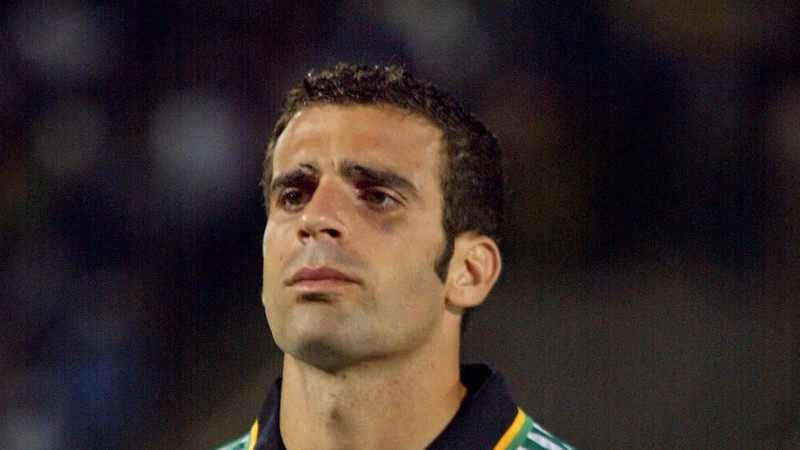A number of AI-generated videos of Khvicha Kvaratskhelia claiming to be South African went viral on social media this past weekend.
Thankfully, many South Africans on social media saw past it and dismissed it for what it was – an attempt by the creator to get views, comments and likes through misinformation.
One comment that came up time-and-time again, though, was about former Bafana Bafana defender Pierre Issa, who made his debut for the national team against Germany in 1997, ahead of the 1998 World Cup.
Issa was born in Germiston in 1975, but after growing up in France, it was in that country that he took his first steps in football. Come 1997, the then 22-year-old as a regular for French Ligue 1 side Marseille.
Get your news on the go. Download the latest App for Android and IOS now
And after his South African heritage was discovered, he was introduced into the Bafana squad that were African champions at the time.
“We are still traumatised by Pierre Issa,” and “we don’t want another Pierre Issa,” read some of the comments on the Kvaratskhelia video. Issa infamously scored an own goal as Bafana Bafana lost 3-0 to France in their World Cup debut in 1998.
France’s third goal was also seen as an own goal, but this has since gone down in the history books as Thierry Henry’s first-ever goal for his country. In recent years, the narrative around Issa has been that of a player who didn’t deserve his place in the national team, which is clearly wrong.
From 1998 onwards, Issa was a valuable player for Bafana Bafana.
While he kept things tidy and wasn’t flashy in defence, Issa was a tall, composed, positional defender who relied on reading the game, not on pace or crunching tackles.
In the late ’90s and early 2000s, fans tended to rate “no-nonsense” stoppers – the Neil Tovey or Mark Fish types – more highly. Issa’s style was shaped by his French football upbringing. He sometimes looked casual or slow to South African eyes used to seeing crunching tacles from centrebacks.
In many ways, Issa was ahead of his time for South African defenders – more of a “ball-playing centre-back” long before that became fashionable. That’s why he continued to play professionally in Europe for a decade after the World Cup and even captained his clubs abroad.
While the public memory focused on a few unlucky moments, Issa was actually a technically gifted, intelligent central defender. His reputation as “bad” is one of those unfair football myths that stuck because of timing and optics, not substance.
In truth, Issa’s story deserves more respect than ridicule. He represented South Africa with pride at a time when Bafana were still finding their identity on the global stage, and his calm, technical approach was simply misunderstood in an era that prized physicality.
With today’s appreciation for ball-playing defenders, Issa would likely be celebrated, not scapegoated – a reminder that football history often judges players more harshly than they deserve.
Sport
* The views expressed are not necessarily the views of or Independent Media.
** JOIN THE CONVERSATION: Send us an email with your comments, thoughts or responses to [email protected]. Letters should be a maximum of 500 words, and may be edited for length. Anonymous correspondence will not be published. Submissions should include a contact number and physical address (not for publication).
